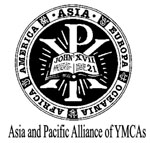|
The third instruction was to group themselves in accordance with the symbols they were holding, such as square, circle and triangle. The exercise ended up with groups having different number of people, some have many and overcrowding, others have few and more open space. The facilitator divided the “wealth” in the form of biscuits in accordance with the wealth distribution scale in the world economic structure, the rich or developed countries,(G7), G20, developing and poor countries. After identifying how much percent of the economic wealth each will receive, the “wealth” was divided accordingly and then distributed. It became very clear then that the first world or rich country received the most number of biscuits, way above those of developing and poor countries. To aptly describe it, the rich or developed countries have more than what they can consume, others have just enough to share among members, some have difficulty dividing it, and others have only one biscuit to divide with so many members in the group.
As the last activity, the facilitator requested for volunteers to act as husband and wife and as parent to a daughter. Both parents are illiterate. One day their daughter suffered from stomach pain and needed medicine. The facilitator provided three kinds of medicine in cups with instruction written on it. One for the cure of stomach pain, one with poison and the other was plain water. The parents will have to choose from those 3 cups which one they would give their daughter since they are illiterate. They just have to make a guess and take chance if they are to give their daughter the right one. For this particular activity, the participants realized how difficult it is for illiterate people to take the right medicine to cure their illness even if the medicines are available but no one would help and assist them. There are about 25% illiterate people in the world today.
The workshop took around 3 hours and was then followed by reflections. Most participants were touched and moved by the first workshop, some felt angry because of the injustices and unequal distribution of wealth and resources. Many of these feelings were shared in small groups and truly reflected on the realities in the world today where the rich are getting richer and the poor are getting poorer. The participants got the feel how to be in those situations, and those who have been in the less privileged group got quite emotional.
Day 2
The New Trading Game was played as a second workshop. The game was set up with 10 countries in the “10 small home groups”, NGOs played by one person, UN Agency by one person and world market by two (2) persons. Each group represented one country and was provided with materials/tools as resources to produce products. Each group discussed and planned what they will do with the respective materials/resources they received to earn a lot of money and more resources. Once they have produced, they could sell the products at the world market and earn money. A country which could earn most money was the winner.
Actually, this game was an unfair game as many players declared because some of the groups got a lot of materials, tools as their resources and large amount of starting fund, internet access and they could get and update information of world market economy; whereas some groups had limited resources, less starting fund, not enough tools, materials and could not receive information and were even discriminated by the market. Even though their products had the same quality compared with other groups, the market didn’t acknowledge and paid only half the price compared with the richer countries. The result came out that the poor countries were still poor or even poorer, and the rich countries became richer. Through analysis and reflections, the participants declared that it was an unfair and unjust game. And that is also true with the world economic and political structure, many of them surmised. Many of the participants were touched, some felt very disappointed, angry and felt discriminated and exploited. The reflections were shared through written statements which they pasted on a piece of illustration paper/flip chart. They also wrote further questions and suggestions to further improve the game.
Day 3
The participants were divided into 3 groups by signing in the attendance paper which was passed on earlier to know where they would like to join for the exposure visit:
Group A visited the Yasukuni Shrine and “Yushukan”, the Japanese military and war museum where they learned about the history of Japanese invasion of Asian countries and the “controversial” view of Japanese history timulat-ed thinking and reactions from the participants. Some of the Japanese participants said they are not aware about this history which they have seen in the museum and that this is not taught in schools and universities.
Group B went to visit and observe the factory of Yakult Gotemba Distillery and the Poultry farm. Also they visited the Kooyama-fukusein hospital where the patients of Hansen’s disease (leprosy) are placed for treatment and healing. There, they discussed and learned about the severe discrimi-nation and social stigma against those who are infected with such disease.
Group C was brought to Yokohama YMCA and Kanagawa Housing Support Center. Yokohama YMCA is the largest YMCA in Japan which has 35 branches where participants were introduced with various activities after last year’s violent earthquake. Besides this, Yokohama is one of themost crowded cities in Japan and many foreigners and tourists come to visit and stay in this place. However, local people do not want to rent accommodation to foreigners so that Yokohama YMCA is helping these people by providing place to stay and other related services.
Day 4
In this session, the participants shared their feedback about the program and what they learned from community visits with their home groups. Their feedback covered two main areas: what touched or moved them most during the exposure and what next action plans they are going to make. The planned sightseeing to Mt. Fuji in the afternoon was cancelled due to bad weather.
Day 5
This day was the time for action planning. Ms. Eno gave brief orientation on how to make an action plan. She provided an example of a realistic plan which included the current situation/program and the goal. To achieve the goal, there have to be steps. Participants did their planning the whole morning, and in the afternoon all participants presented their action plans individually in separate groups/audience.
As most of the participants are University students and some are still in high schools, they are already aware of global issues and have been thinking about the positive and negative impacts of these phenomena. Some action plans are realistic, practical and doable. It is hoped that these participants would truly work to realize their plans at their own local or national YMCAs.
Overall, the participants and us as staff and observers learned many things from the program. It was a truly inspiring event for us to join the youth. We deeply appreciate to have joined this annual program of North East Asia Sub-regional Summer Project.
JULIA MUN PAN
General Secretary’s Visit to Mongolia & Pakistan - September 8-10, 2012
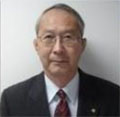 The YMCA in Mongolia was registered nearly 10 years ago by the support of Korean movement. APAY held the first Partners meeting in 2006 (NCY Korea, Seoul YMCA, NCY Japan, Taipei Y, Manila Downtown Y, and APAY). However, in 2008, the Mongolian Government concluded that their activities were more missionary work rather than its original plan. They refused to extend the registration. The YMCA disappeared since then. The YMCA in Mongolia was registered nearly 10 years ago by the support of Korean movement. APAY held the first Partners meeting in 2006 (NCY Korea, Seoul YMCA, NCY Japan, Taipei Y, Manila Downtown Y, and APAY). However, in 2008, the Mongolian Government concluded that their activities were more missionary work rather than its original plan. They refused to extend the registration. The YMCA disappeared since then.
In September 2012, APAY along with Japan and Korea visited the group called Christian Youth Association (CYA) that is similar to the YMCA. One of the leaders of the group got to know the YMCA movement in the USA and asked us the possibility of developing YMCA activities in Mongolia. We met for the first time to understand the missions and purposes of CYA and YMCA. Their Mission statement says, “to unite initiatives, desires, thoughts of Christian students and of young people, and to make our significant contributions to the development of our country Mongolia.” And their Vision is “to become a strong nation-wide youth movement, transform our society and Mongolia through our faith and actions, and raise Godly, healthy, intelligent, patriotic and creative young future leaders.” We all agreed that the mission and vision of the CYA is very similar and common in nature with that of YMCA.
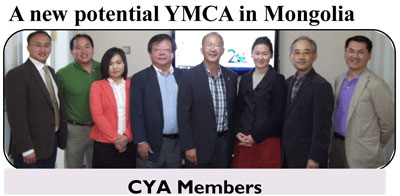 In 2011, they conducted activities 10 times a year, such as seminars, fellowship events, bus tours, prayer meetings, etc. There are 150 members with 30-50 active members, all Christian young people, wishing community work. They want to be a bridge between churches and communities and consider the group as a new open church and a youth oriented movement. In 2011, they conducted activities 10 times a year, such as seminars, fellowship events, bus tours, prayer meetings, etc. There are 150 members with 30-50 active members, all Christian young people, wishing community work. They want to be a bridge between churches and communities and consider the group as a new open church and a youth oriented movement.
The first step was completed. APAY agreed on the similarity on the common missions and visions based on Christian faith and values. CYA will need to discuss among their members who were not present in this discussion.
As the result, we concluded as follows; The CYA will need a year to discuss further and to plan for the future vision with YMCA or without YMCA. During this trial year, both CYA and YMCA will plan activities. We agreed that some YMCAs would conduct exchange programs such as work camps or trainings for outdoor education. APAY would invite its board members and core members to the APAY regional meetings and trainings to understand the nature of the YMCA. And then, if CYA decided to join the YMCA movement, we will meet again in September 2013 for discussing future plan jointly with some potential partners.
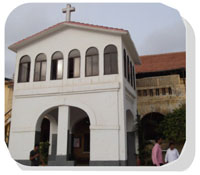 YMCA struggling in Karachi, Pakistan YMCA struggling in Karachi, Pakistan
There are two local YMCAs at present in Pakistan, Karachi and Lahore. The Karachi YMCA is one of the oldest YMCAs in Asia (1860). However, the YMCA has been separated into two groups in the last ten years. During this period, the many programs have not been conducted, and some other groups from outside the YMCA have used the YMCA ground for their commercial activities illegally. In September 2012, Paul Le Gros, former Vice President of APAY and Kohei visited the Karachi YMCA to find some ways to solve the situation there.
Current situation of the YMCA in Karachi
Regardless of no functional YMCA governance and the confusion of land issues, three programs have been continued by the efforts of the staff members of the YMCA. The Polytechnic Institute has been in existence for 51 years and currently has 600 students in various training courses with 40 some staff members.
They also run an elementary school in a poor Christian community with 275 students. Another operation is an elementary and secondary school with 360 students now. The number of students has been gradually decreasing. All of the above operations were financially balanced.
Next Steps suggested
We identified the need to make the memorandum of understanding (MOU) among all the stakeholders. MOU would show APAY standpoint, sharing the understandings of facts and directions of the problem solving with transparent manner. We will propose such MOU and if all the stakeholders agreed on this, they can work together. MOU will create the common understandings over the leadership and property issues. Based on this agreement, we hope to start a new step forward toward strong YMCA movement in Karachi.
KOHEI YAMADA
Youth Participation and Leadership Development
“Youth Empowerment through Music and Art”
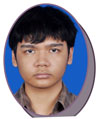 After attending the Regional Youth Conference 2012 in Singapore last July, and performing for Youth Got Talent in the same event, something became clear to me: there are two things that young people needs and craves the most: encouragement and acknowledgement. We as young people have all the energies, abilities, skills and knowledge to do creative things whatever we want, but we need attention from people around us. We also need them to support us, guide us to the right path and nurture us so we can be the good driving force for the society. After attending the Regional Youth Conference 2012 in Singapore last July, and performing for Youth Got Talent in the same event, something became clear to me: there are two things that young people needs and craves the most: encouragement and acknowledgement. We as young people have all the energies, abilities, skills and knowledge to do creative things whatever we want, but we need attention from people around us. We also need them to support us, guide us to the right path and nurture us so we can be the good driving force for the society.
The society tends to ignore the young people, thinking that we are too immature to get involved in serious problems in the society. Although some people realize that young people must be directed and nurtured, they also guide us to a path that doesn’t suit us and our interests. Things like this makes young people very much frustrated and they suffer from withdrawal syndrome.
One way to reduce this negative result is to engage young people in a subject they all love and that is art. Almost all young people love any form of art, like drawing, singing, dancing, etc. If this interest is acknowledged and encouraged, it will be better forming their attitude towards society as they grow to become adults and more mature. They can also feel better about their position in the society, not as useless bunch but actually have an important role to play.
A real example of this empowerment through music is what I experienced when I was still attending piano course. Most of the course participants were students, ranging from elementary to high school. From what I observed, students who practiced music tend to become friendlier to other people, even with strangers and become more respectful towards older people. Some of them even get better grade in school despite busy practicing music.
This proves that music and art, or whatever the young people are interested in, if they are acknowledged and encouraged to do things they are interested in, this will empower them to be a better person and play an important role in the society.
Steady Kambodji, Indonesia
“Youth Empowerment through Youth Actions”
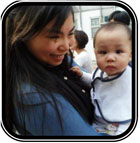 University student life is full of learning and practice. As a social work student and part of Campus YMCA in Hong Kong, I want to see, explore and care our society through youth actions. University student life is full of learning and practice. As a social work student and part of Campus YMCA in Hong Kong, I want to see, explore and care our society through youth actions.
There are different opportunities to experience in YMCA youth group. I formed a volunteer team to serve homeless people and new immigrants living in Interim Housings. We study the social issues in Hong Kong, plan for our actions and hope for small changes.
After organizing a service programme to Myanmar, I facilitated another youth service in Hunan, China. These are treasurable memories in my student life. I gain better understanding our surroundings and explore and learn how to serve people in need. I have built up friendships with people everywhere. This is the precious gift I got in YMCA. Hope that we all youth can keep our passion in actions and experience more.
Lisa Li Wai Shan, Hong Kong, China
Global Alternative Tourism Network (GATN)
Planning Workshop
The Global Alternative Tourism Network Planning Workshop and Training of Trainers, hosted by APAY was held during 31 August – 2 September 2012 in Bangkok, Thailand. This workshop was attended by the members of the GATN Task Force of APAY, including the Advisors from region of the Asia Pacific. The Members brainstormed for the planning of GATN Program for the next three years with a vision of transforming it to an independent network of Alternative Tourism.
On the first day, the sessions began with an introduction by Mr. Kohei Yamada, General Secretary of APAY, who explained the components of GATN Program as earmarked the Strategic Plan of APAY for the fiscal year 2012-2015. He underscored the need of creativity in our planning and also our sincerity to put our plans into actions. It was felt the YMCAs involvement in tourism and in the respective communities was quite substantial; therefore, community based tourism, an integral part of Alternative Tourism should be promoted through our YMCAs. Mr. Duncan Chowdhury, Executive Secretary for Programs continued with a presentation of APAY journey in Alternative Tourism for the last 4 years. Mr. Caesar D’Mello presented a paper on ‘Our Understanding of the State of Tourism” its impact, development and the myth of poverty alleviation. Mr. Duncan Chowdhury resumed with an overview of APAY future plan on Alternative Tourism for the next three years, based on the vision of GATN that includes skill building, marketing, publications, linkages, communications, building alliances and its autonomy. This was followed by group discussions and plenary presentation.
On the second day, Mr. Ranjan Solomon presented his thoughts, under the theme “Tourism as Human Encounters Towards A Common Humanity”. He stretched that Alternative Tourism could be an alternative to the mass tourism. The second presentation from Mr. Caesar D’Mello was about marketing strategies of GATN. Internal Marketing and External Marketing, this was followed by group discussions and plenary presentation.
On the third day the participants mainly concentrated on the finalization of the APAY program of GATN for the next three years, they took part in deliberations and finalized a time-framed action plan. During the year 2013, APAY will be focusing in establishing Alternative Tourism sites in the YMCAs in the region, in the year 2014 marketing of AT shall be emphasized and in the year 2015 efforts shall be made to transform the APAY Alternative Movement towards a greater autonomy, so that it continues to function independently for the promotion of Alternative Tourism in future.
DUNCAN CHOWDHURY
National Council of YMCAs of Bangladesh has New NGS
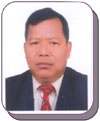 Mr. Nipun Sangma has been appointed as National General Secretary of National Council of YMCAs of Bangladesh (NCYB) with effective from 1st September, 2012. He started his career with NCY Bangladesh as Executive Secretary from 1st November 2011. Mr. Nipun Sangma has been involved with the community development works for more than 20 years in Bangladesh. He served different organizations holding senior management positions before joining the YMCA. Mr. Sangma has completed his Master in Commerce on Management from Dhaka University; Diploma in Social Development at COADY International Training Institute, St. Francis Xavier University of Canada. Mr. Nipun Sangma has been appointed as National General Secretary of National Council of YMCAs of Bangladesh (NCYB) with effective from 1st September, 2012. He started his career with NCY Bangladesh as Executive Secretary from 1st November 2011. Mr. Nipun Sangma has been involved with the community development works for more than 20 years in Bangladesh. He served different organizations holding senior management positions before joining the YMCA. Mr. Sangma has completed his Master in Commerce on Management from Dhaka University; Diploma in Social Development at COADY International Training Institute, St. Francis Xavier University of Canada.
Resource Mobilization Workshop
September 2012
In recent years, the global financial crisis had a strong negative impact on the resources of YMCA movements around the world including the Asia and Pacific region. Despite the crisis, financial resources and volunteering time have increased instead of deteriorating. This positive development can be attributed to the fact that with good programs and image of the YMCA and relevant services for the needy communities as good cases to present to donors and contributors, people continued to contribute and donate to the good cause of the YMCA. This is what most, if not all of the North American YMCAs have developed through long years of improving their resource mobilization program packaging which we, in the Asia and Pacific region need to learn about.
We know that North American YMCAs Development organization (NAYDO) have been organizing such training workshops on philanthropy annually. They shared about their effective approaches on resource mobilization through planned giving and annual fund campaigns and many other schemes of resource generation.
However, it is because of cultural differences and realities that we are stocked where we are today in the field of resource mobilization and fund raising. We haven’t learned to tap good resources and touch our people’s hearts and minds and convinced them and ourselves to give and contribute to support the good works of the YMCA.
Let our YMCAs in different national movements take the challenge now to come, learn and act together to lead our YMCAs in rediscovering what might lead us in taking our movements to greater heights through resource mobilization. Let us make the YMCAs’ name bigger in our respective areas by increasing the impact we create through the good programs and cases that we want to share with staff, volunteers and members to carry forward and attain our annual fund campaign goals in the coming days. It is for this reason that the Asia and Pacific Alliance of YMCAs (APAY) sought the help and cooperation of the World Urban Network and NAYDO to send volunteer consultants and resource persons to help facilitate the resource mobilization workshops with local movements in various national YMCAs in the region in consideration of their realities and cultural contexts.
The first series of workshops are scheduled as follows:
October 2-4, Pune, India; 6-8 October in Trivandrum, Kerala, 12-14 October in Sri Lanka and on 22-25 November in Baguio, Philippines. A team of volunteer consultants/resource persons will join these workshops. Every after workshop in a particular location, one resource person will stay and make further follow-ups to meet and assist identified staff/volunteer trainers so as necessary resource mobilization infrastructure will be set up in that particular YMCA until their actual annual fund campaign is ready to be launched. Final selection for this year’s team of Volunteer Consultants of APAY includes: Mr. Ron Coulombe, from Edmonton Canada who will be the lead volunteer consultant and facilitator in all the areas mentioned. He will be supported by Ms. Brenda Blakovich from USA, a Volunteer Consultant for Pune Workshop; Ms. Jamie Inman, Volunteer Consultant from Canada who will work at Trivandrum Workshop; Ms. Jessica Rawn, Volunteer Consultant from USA, who will work at Sri Lanka Workshop; and finally, Mr. Paul Andersen, Volunteer Consultant from USA who will work with Workshop in the Philippines. Initially, the APAY hopes to work with about 8-10 national movements for a period of three years and these YMCAs have so far confirmed to carry the task forward.
 It is hoped that this number of national movements will bring good outcomes for their own resource mobilization models and practices after their first successful launch. Let us join together in wishing them the best for their initiatives. It is hoped that this number of national movements will bring good outcomes for their own resource mobilization models and practices after their first successful launch. Let us join together in wishing them the best for their initiatives.
ELOISA DUKHA BORREO
|
